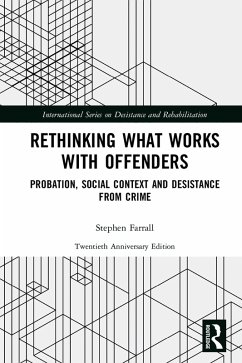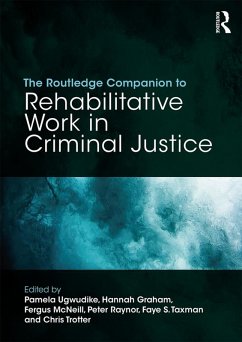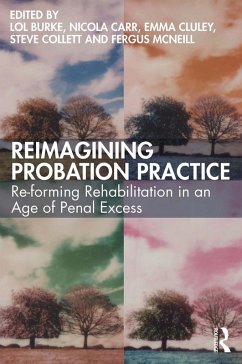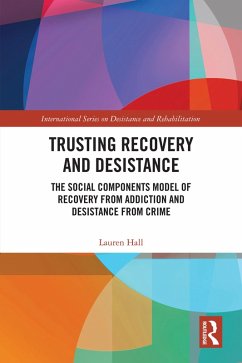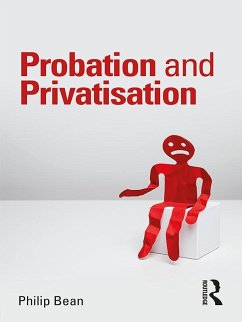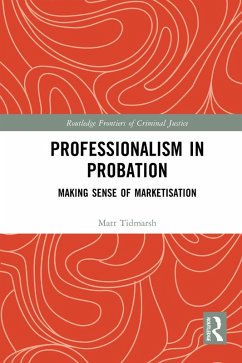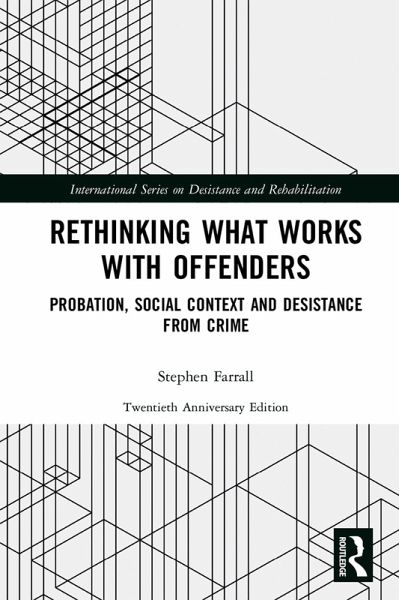
Rethinking What Works with Offenders (eBook, ePUB)
Probation, Social Context and Desistance from Crime
Versandkostenfrei!
Sofort per Download lieferbar
39,95 €
inkl. MwSt.
Weitere Ausgaben:

PAYBACK Punkte
20 °P sammeln!
When it was published twenty years ago, Rethinking What Works with Offenders made a major contribution to criminological knowledge on why people stopped offending, and the impact the probation service had on the desistance process. Unlike other studies that had relied on official conviction data, it was the first to make use of self-reported data, including interviews with men and women on probation, and their supervising Probation Officers. It reconceptualised probation outcomes in terms of degrees of success rather than as 'successful' or 'unsuccessful' and offered important policy implicati...
When it was published twenty years ago, Rethinking What Works with Offenders made a major contribution to criminological knowledge on why people stopped offending, and the impact the probation service had on the desistance process. Unlike other studies that had relied on official conviction data, it was the first to make use of self-reported data, including interviews with men and women on probation, and their supervising Probation Officers. It reconceptualised probation outcomes in terms of degrees of success rather than as 'successful' or 'unsuccessful' and offered important policy implications of these conclusions.
The Twentieth Anniversary edition contains the original text along with a new Foreword by Shadd Maruna and Fergus McNeill, locating the book historically and assessing its continued importance to Criminology. It also includes a new chapter by the author reporting on the key findings of the follow-up interviews in 2004 and 2010-12, reflecting on key developments in the field and developing a theory of assisted desistance. Furthermore, it features four new commentaries from Mark Halsey, Isabelle F.-Dufour, Martine Herzog-Evans and José Cid reflecting on the importance and legacy of the book.
This book presents an important and challenging range of findings on 'what works' in probation and with offenders and remains essential reading for anybody professionally concerned with the present and future of probation.
The Twentieth Anniversary edition contains the original text along with a new Foreword by Shadd Maruna and Fergus McNeill, locating the book historically and assessing its continued importance to Criminology. It also includes a new chapter by the author reporting on the key findings of the follow-up interviews in 2004 and 2010-12, reflecting on key developments in the field and developing a theory of assisted desistance. Furthermore, it features four new commentaries from Mark Halsey, Isabelle F.-Dufour, Martine Herzog-Evans and José Cid reflecting on the importance and legacy of the book.
This book presents an important and challenging range of findings on 'what works' in probation and with offenders and remains essential reading for anybody professionally concerned with the present and future of probation.
Dieser Download kann aus rechtlichen Gründen nur mit Rechnungsadresse in A, B, BG, CY, CZ, D, DK, EW, E, FIN, F, GR, HR, H, IRL, I, LT, L, LR, M, NL, PL, P, R, S, SLO, SK ausgeliefert werden.




